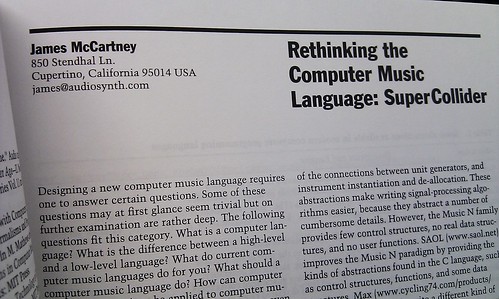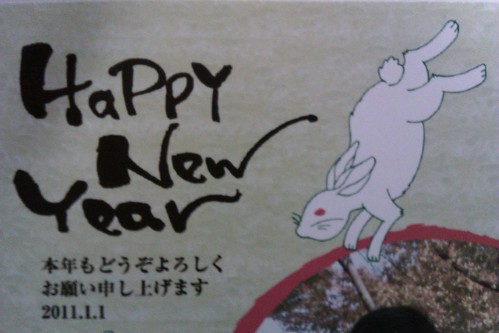It has taken me all of January to catch up with topics from 2010. The last thing I need to do is revisit my post last year about "raise" and "rise", which several people said still confused them.
Let's try to clear things up.
● Let's clear up a couple of things. いくつかのことをはっりさせましょう。(example from Eijiro on the Web)
"Raise" is a verb that usually requires an object: a transitive verb. You can make a sentence in passive voice with it.
● transitive verb 他動 たどう (definition from jmdict)
"Rise" is a verb that isn't used with an object: an intransitive verb. You can't make a sentence in passive voice with it.
● intransitive verb 自動詞 じどうし (definition from jmdict)
Radish cakes (or turnip cakes) are a traditional dish at Chinese New Year. One Chinese name for them means something like "rising height every year" or "growing taller every year".
In other words, your height rises every year (notice, no object). That's the auspicious meaning of the dish.
● auspicious 吉祥、愛でたい (definition from jmdict)
I tried to make them this weekend, and while it looks pretty good in this photo, the texture was actually pretty wrong.
From the photo in my next post, you will see that I have to raise my skill level at making radish cakes (notice "skill level" is the object).
2011/01/31
2011/01/25
私は英語の使い方に注意した方が良い。
Before I get on to this year's important topics, there's still a bit of catching up to do regarding last year's posts.
I'm writing this post while I have a cup of tea and cookies at a cafe near our classrooms.
I am encouraged by the progress of my students. Back on December 14, I was writing about the difference between "raise" and "rise". In that post, I made an English mistake!
A few of you had not only the sharp eyes to catch my mistake, but also the confidence to bring it to my attention.
・sharp eye 鋭い[刺すような]目[視線](definition from Eijiro on the Web)
・bring ~ to someone's attention ~を(人)に気付かせる、~に(人)の目[注意]を向けさせる、(人)を~に注目させる (definition from Eijiro on the Web)
Here's my mistake:
× If you want to ask me a question, you don't have to raise you hand; just send me email!
◯ If you want to ask me a question, you don't have to raise your hand; just send me email!
There's no explanation for the mistake; it's just a silly mistake that I should have caught. Thanks again to everyone who pointed it out.
ラベル:
間違い
2011/01/21
2010年ベスト検索キーワード
It was interesting to see what kind of searches people did with Google and Yahoo that brought people to our blog.
The third-most-popular search was for "look look like 違い". We have posts about this topic!
Most of my searches in 2010 were about programming computers, so I won't bore you with those pages. My searches lead me to articles like the one in the picture above.
We're looking forward to answering your questions in 2011!
The third-most-popular search was for "look look like 違い". We have posts about this topic!
http://upgradeenglish.blogspot.com/2010/05/looklook-like.html
http://upgradeenglish.blogspot.com/2009/06/dont-make-these-simple-mistakes.htmlThe second-most-popular search was for "enjoy 使い方". We have written a post about this one, too!
http://upgradeenglish.blogspot.com/2009/09/enjoy.html
http://upgradeenglish.blogspot.com/2010/07/enjoypart-2.html
http://upgradeenglish.blogspot.com/2009/07/enjoying-sunset.htmlThe most popular search was "as to as for 違い". Here's the link to our post about that.
http://upgradeenglish.blogspot.com/2009/10/as-toas-for.htmlSince these questions seem to be popular, we'll be writing more about them in 2011. Please let us know what other questions you have.
Most of my searches in 2010 were about programming computers, so I won't bore you with those pages. My searches lead me to articles like the one in the picture above.
We're looking forward to answering your questions in 2011!
ラベル:
よくある質問
2011/01/20
2010年人気のあったポスト
I thought you might be interested to know what readers of our blog were interested in last year. I bet that my headline has a mistake. I'll check it and then correct it.
The third-most-popular post was about the difference between "look" and "look like". It was a post from May, and it also resulted in a lot of people telling me to post a better photo myself.
http://upgradeenglish.blogspot.com/2010/06/withoutbesides.html
For me, one of the best things in 2010 was the Ryoji Ikeda performance I went to. That's what is shown in this photo. I wrote about it in this post talking about the difference between how to use "so" and "such".
The third-most-popular post was about the difference between "look" and "look like". It was a post from May, and it also resulted in a lot of people telling me to post a better photo myself.
http://upgradeenglish.blogspot.com/2010/05/looklook-like.htmlThe second-most-popular post was a post from 2009 about the difference between "as to" and "as for".
http://upgradeenglish.blogspot.com/2009/10/as-toas-for.htmlThe most popular post was about the difference between "without" and "besides". I wrote about a guitar that I found in the garbage.
http://upgradeenglish.blogspot.com/2010/06/withoutbesides.html
For me, one of the best things in 2010 was the Ryoji Ikeda performance I went to. That's what is shown in this photo. I wrote about it in this post talking about the difference between how to use "so" and "such".
http://upgradeenglish.blogspot.com/2010/11/sosuch.htmlIf you have any questions left over from 2010, please ask me!
2011/01/19
A Belated Happy New Year!
That word in the headline is a good word for you when you forget someone's birthday.
I had a busy holiday, and I have had an even busier new year. Still, one of my new year's resolutions is to bring your more blog posts in 2011. I'll do my best!
Greeting cards like this one came at the new year. It's a nice idea; I wonder how long it will take for them to become totally digital, just like other mail.
I hope you all will send me your comments and suggestions this year. If you're still a bit wary of using English, you can send me your thoughts in Japanese. I encourage you to use English, though.
If you or someone you know needs an English teacher, I especially hope you will get in touch.
Happy New Year!
- I'm wishing you a belated happy birthday.
- belated【形】遅れて到着した、手遅れになった、時代遅れの、遅ればせながら、少し遅れの・"I got married last year." "Well, congratulations -- a little belated, though." : 「私、昨年結婚したんです」「それはそれはおめでとうございます。遅ればせながら」・Belated Merry Christmas and Happy New Year! : 遅ればせながらメリークリスマス&ハッピーニューイヤー。(definition and examples from Eijiro on the Web)
I had a busy holiday, and I have had an even busier new year. Still, one of my new year's resolutions is to bring your more blog posts in 2011. I'll do my best!
- new year's resolution 新年の誓い[決意・抱負]、元旦の決心 (defintion from Eijiro on the Web)
Greeting cards like this one came at the new year. It's a nice idea; I wonder how long it will take for them to become totally digital, just like other mail.
- greeting card グリーティングカード、挨拶状◆クリスマスや新年など季節の節目に知人・友人・恋人などに送るカード (definition from Eijiro on the Web)
I hope you all will send me your comments and suggestions this year. If you're still a bit wary of using English, you can send me your thoughts in Japanese. I encourage you to use English, though.
- become wary of~に警戒するようになる (definition from Eijiro on the Web)
If you or someone you know needs an English teacher, I especially hope you will get in touch.
Happy New Year!
ラベル:
単語
登録:
投稿 (Atom)





